"D Major" (or the key of D) is a major scale based on D, with the pitches E F# G A B C#. Its key signature has two sharps: F# C#. Its Relative Minor scale is Bm Minor. Its Parallel Minor is D Minor.
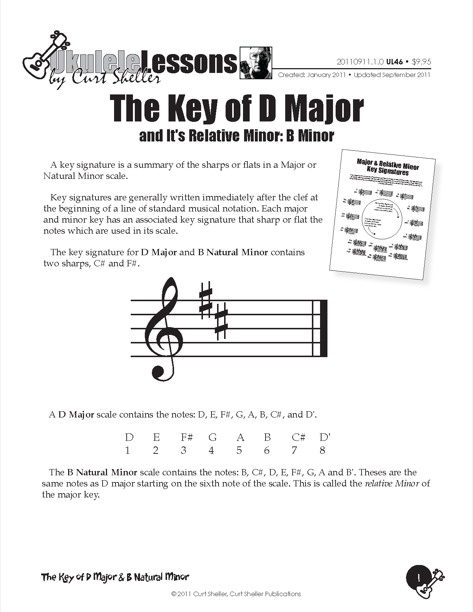
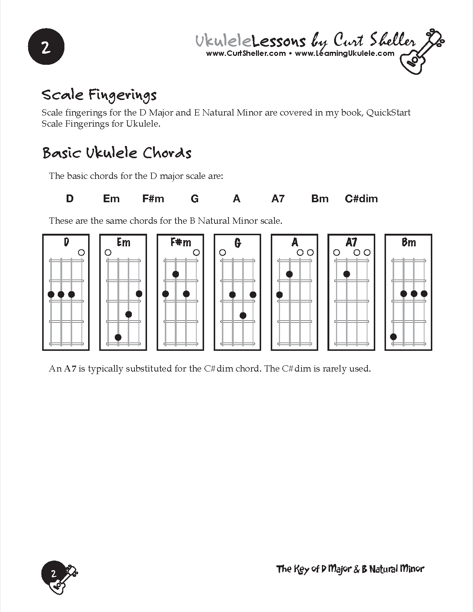


"D Major" (or the key of D) is a major scale based on D, consisting of the pitches D, E, F#, G, A, B, and C#. Its key signature consists of two sharps: F# and C#.
Its relative minor is B minor and its parallel minor is D minor.
Key of D Major / B Minor
To identity a sharp (♯) key based on the Key Signature , you can look at the last sharp – that is the key. This works on all sharp key signatures.
If there is only one sharp it's the Key of G Major / Em – any a very popular ukulele, guitar and mandolin key and easy sharp key to recognize.
Key of G Major / Em Minor
"D Major" (or the key of D) is a major scale based on D, consisting of the pitches D, E, F#, G, A, B, and C#. Its key signature consists of two sharps: F# and C#.
Its relative minor is B minor and its parallel minor is D minor.
Key of D Major / B Minor
To identity a sharp (♯) key based on the Key Signature , you can look at the last sharp – that is the key. This works on all sharp key signatures.
If there is only one sharp it's the Key of G Major / Em – any a very popular ukulele, guitar and mandolin key and easy sharp key to recognize.
Key of G Major / Em Minor
Related Lessons, Videos, Lesson Series, Songs, Books & Reference Charts, Resources & Assets, Workshops are below.
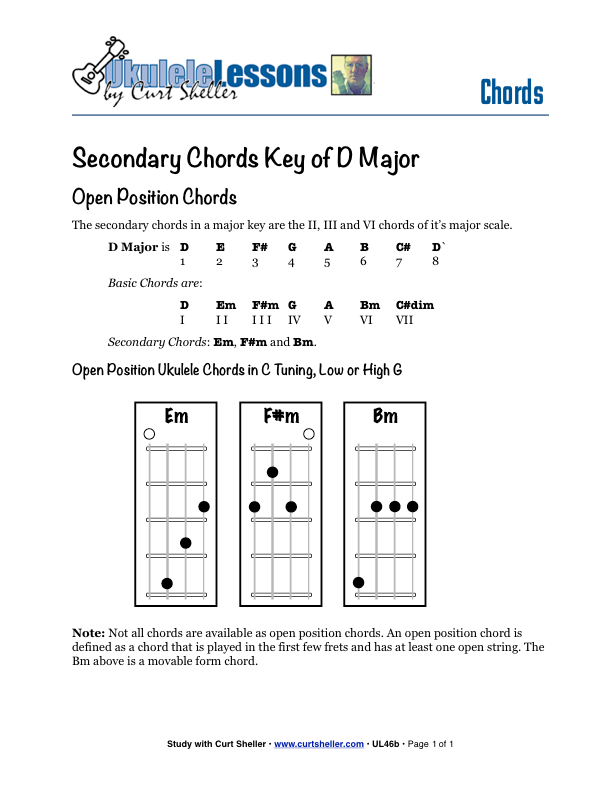
The secondary chords for any major key are the II, III and VI chords of its corresponding major scale. For D Major the secondary chords are: Em, F#m and Bm. From the primary and secondary chords of a major key countless songs and chords progressions can be played. This lesson covers the basic open position chords for D Major.
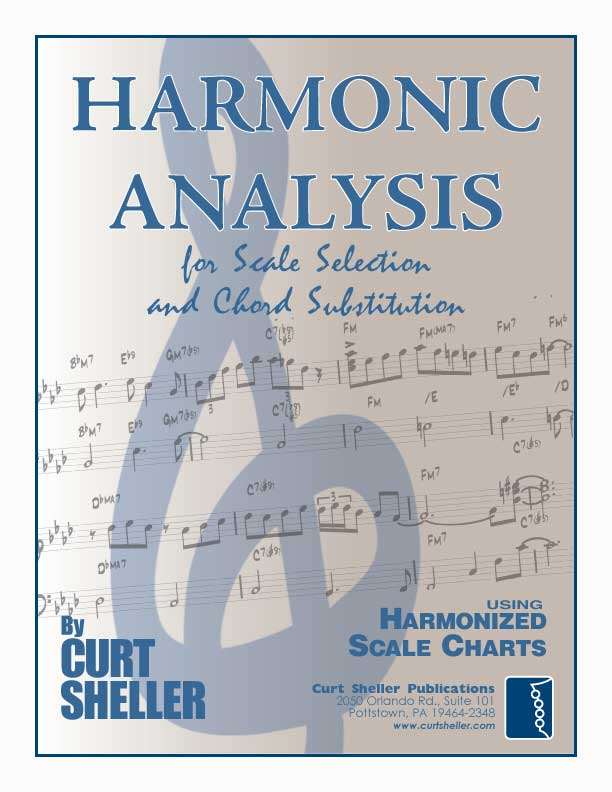
Harmonic Analysis is the understanding of the functional sequence of chords. It is the process used to analyze the harmonic structure of a progression, song or composition. This analysis is then used to make scale selections for improvisation and chord substitution.


return in your investment)—it is this— learning the
f*ckingnotes of your OWN instrument. Sorry for the tough talks—but it is sooooo true!

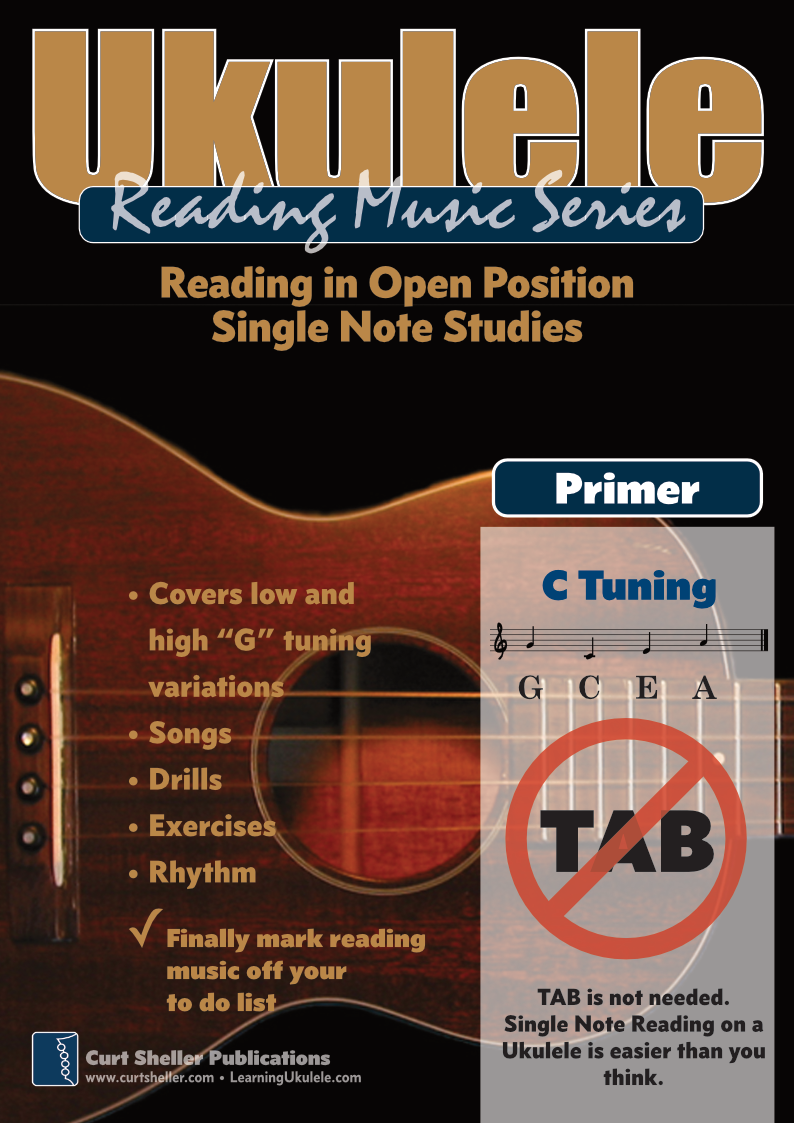
Learn to read single note melodies in the first/open position is a lot easier than you might think. Book: Ukulele – Reading Music Series – Primer

An organized collection of daily practice and reference material for the contemporary ukulele player for developing the vocabulary and knowledge necessary for single note playing. Book: Daily Practice Material for the Contemporary Ukulele
Checkout the Books & Reference Charts for additional Handy, Dandy Reference Charts.
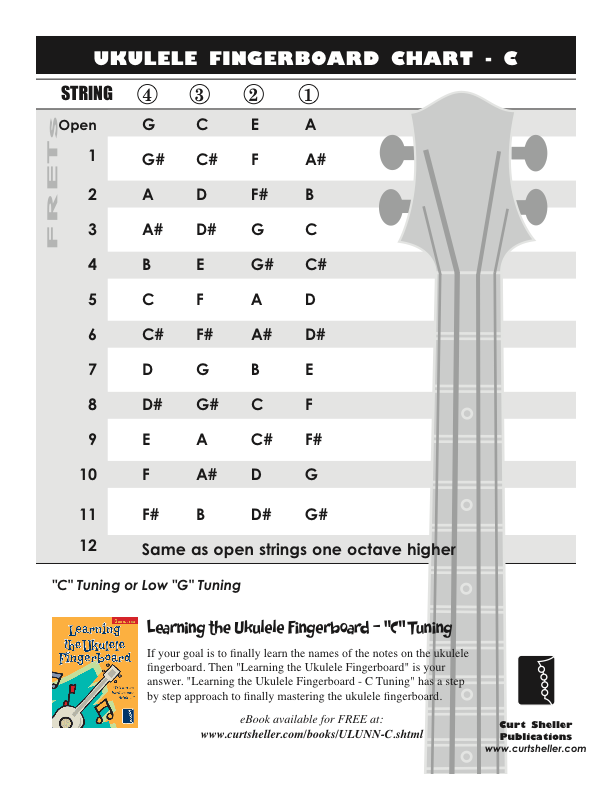
Ukulele Fingerboard Chart for C Tuning, Low or High G – G C E A
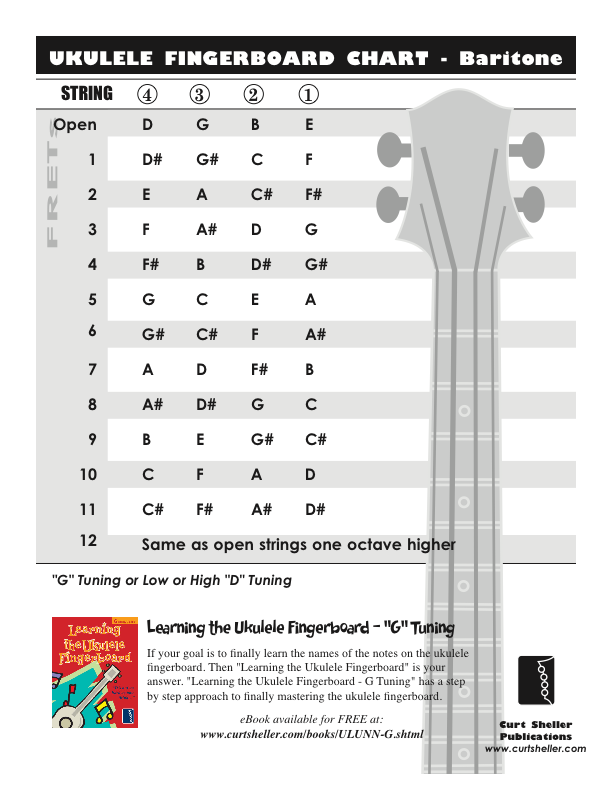
Ukulele Fingerboard Chart for G Tuning, Low or High A – D G B E
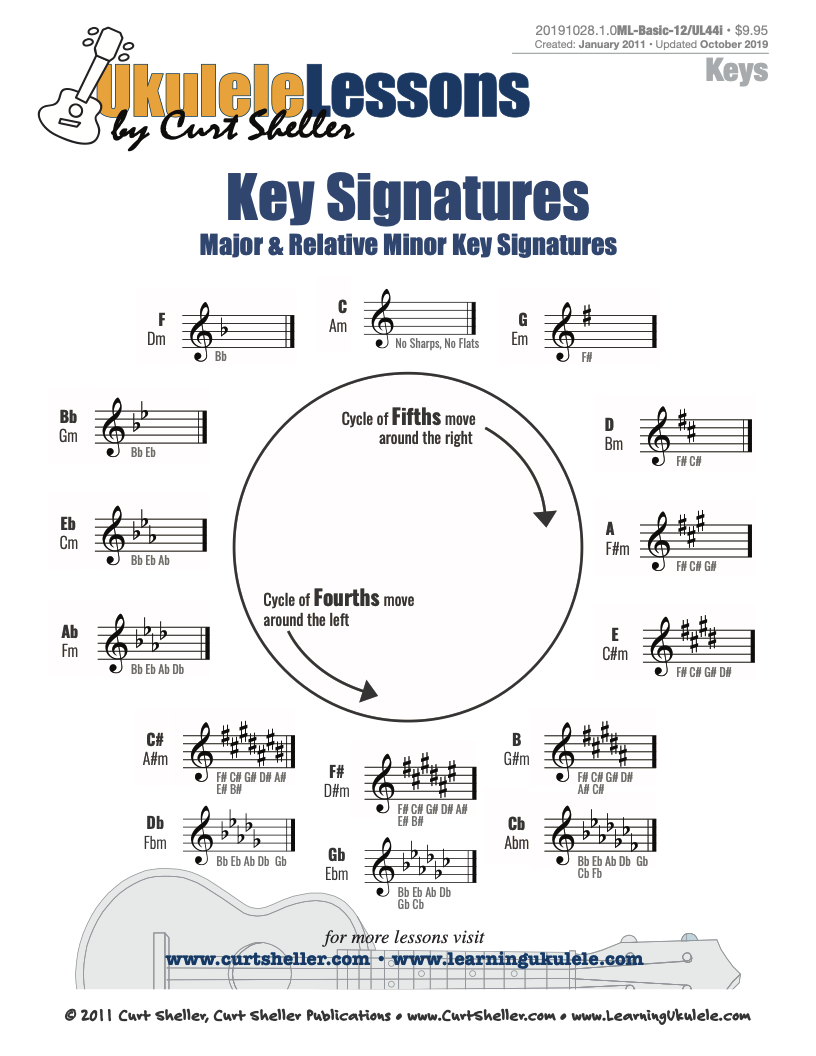
A handy reference chart of all 15 major and relative minor key signatures. US Letter 8.5 x 11 sized (ANSI-A) , A4



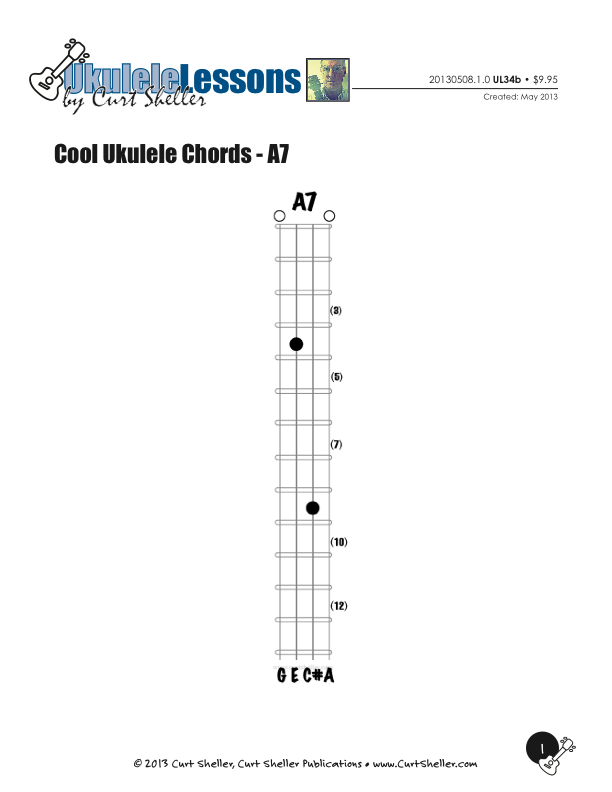
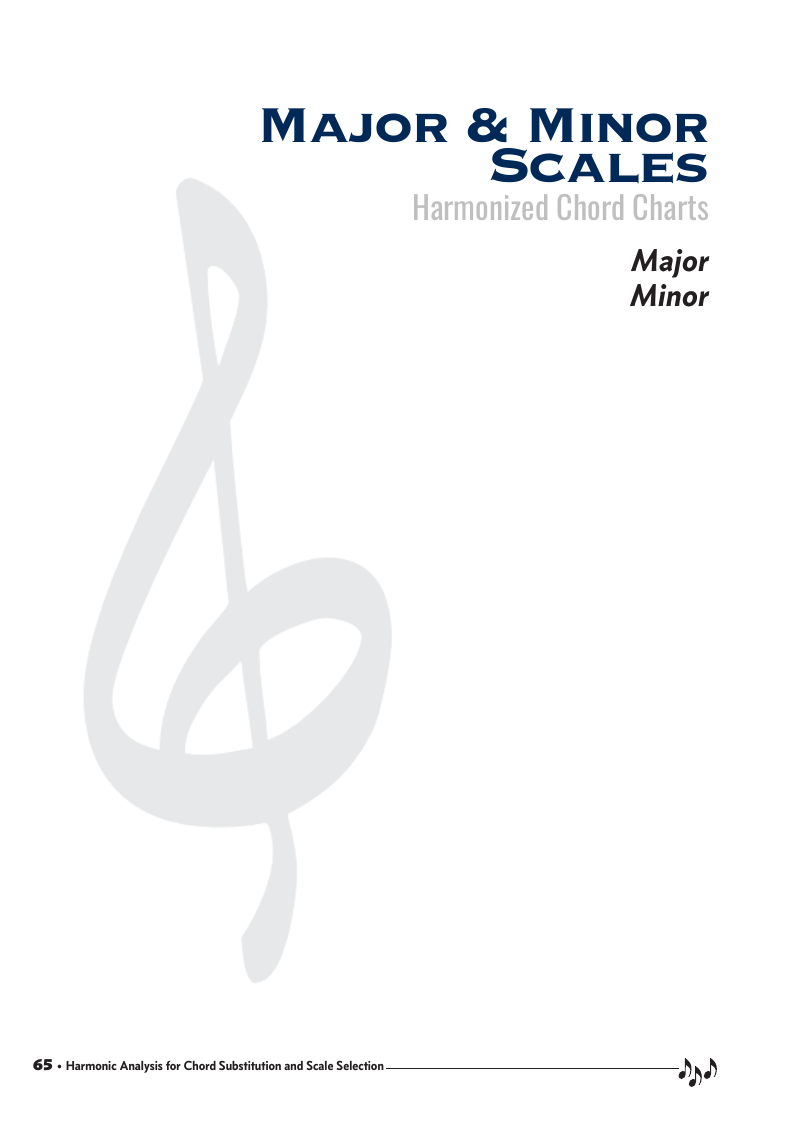
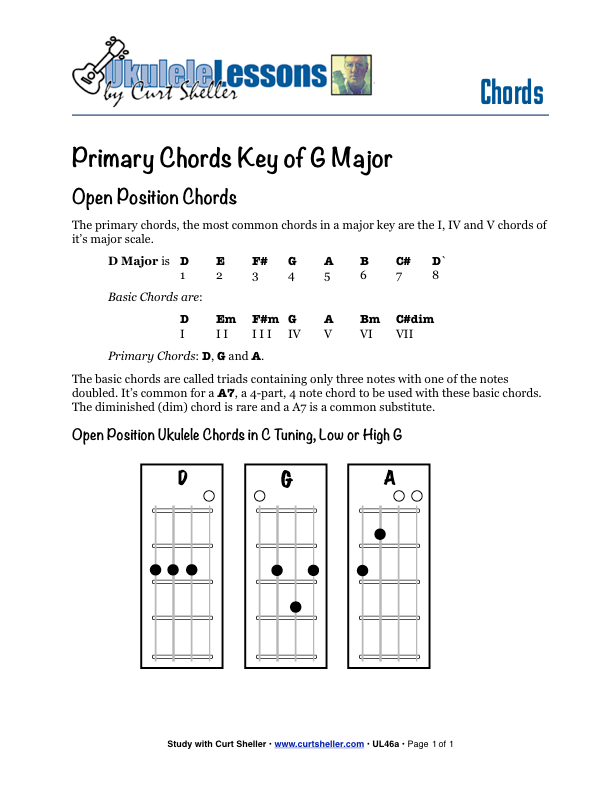
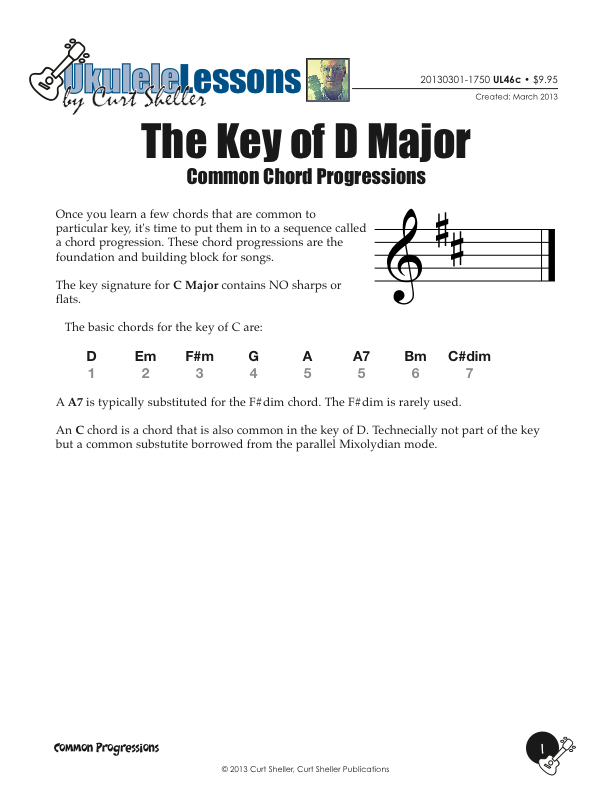
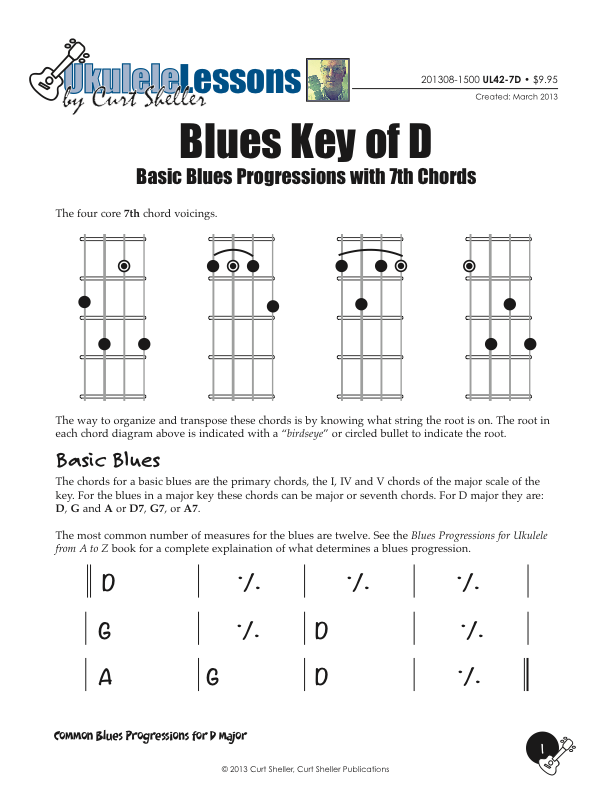
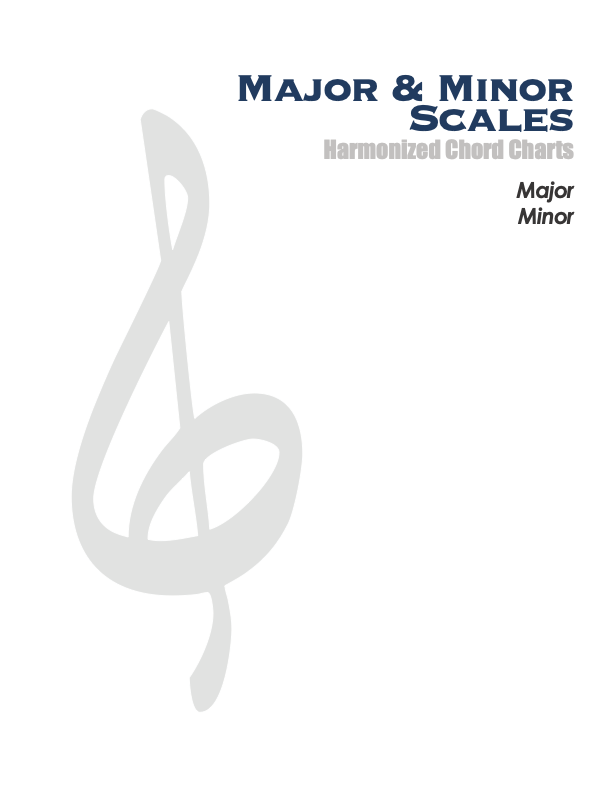

.jpg)